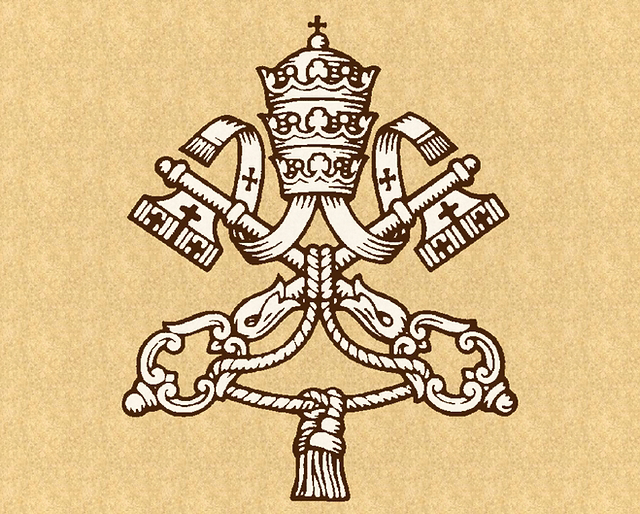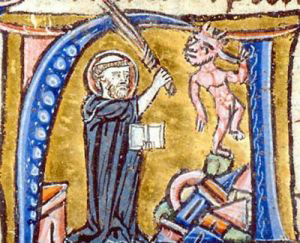Two Logical Arguments in Favor of the "Infallible Safety" of the Ordinary Magisterium
Thesis: Individuals cannot and ought not accuse the Ordinary Magisterium (OM) of Pope Francis as having had promulgated heresy or serious error.
NOTE: Definitions of terms used in this post, and in this blog more widely can be found here.
My reasoning for this is two-fold:
(1) Why I assert that Pope Francis cannot be accused of heresy. This is because I assess that each instance of Francis' ordinary magisterium which is accused of such heresy can be interpreted (and thus should be interpreted) in an orthodox manner. Thus, the evidence of such heresy is not blatantly obvious; hence the evidence of such heresy is likewise ambiguous. In an instance of ambiguity, the most charitable interpretation should be rendered the acceptable one.
[I hope to eventually address argument (1) more specifically by taking a look at the instances in which the OM of Francis has been accused of heresy or serious error, and why such interpretations are not the only interpretations that can be given.]
(2) I assert that persons ought not accuse the Ordinary Magisterium (OM) of any Pope of heresy or of promulgating dangerous error This notion of known as "infallible safety," in which it is posited that the ordinary (non-definitive) magisterium of the Church (including the papal magisterium) cannot fall into heresy or teach dangerous error.
One argument for such a stance is the following:
A ∧ B ∧ C ∧ D ∧ E ∧ F ∴ G
Where:
∧ = AND
∴ = THEREFORE
A. If the OM could fall into heresy or dangerous error, then it could not be considered safe.
B. If the OM cannot be considered safe, then how can we know that teachings of the OM are trustworthy, except by our own non-magisterial interpretations of such.
C. If such determinations can only fall to non-organs of the magisterium, then the OM cannot be trusted.
D. If the OM cannot be trusted, then the Church can only be absolutely trusted when she speaks with her extraordinary magisterium (EM; ie. infallible magisterium; either primary or secondary objects of infallibility).
E. Since the vast majority of the Church's teachings are done on the level of the OM, then the vast majority of the Church's teachings cannot be absolutely trusted (if the OM cannot be considered trustworthy, in itself).
F. An ecclesiology where the vast majority of the Church's teachings cannot be considered trustworthy is an ecclesiology which cannot be accepted, lest the Church's teaching office be rendered practically useless.
G. [Conclusion of (2)] Thus, the converse conclusion is acceptable -- that the vast majority of the Church's teachings (those of the ordinary magisterium) can be and ought to be considered trustworthy, and thus "safe," by the faithful.
Caveat: Of course, the magisterium (either OM or EM) is not a *source* of Divine revelation, but it is the only authentic interpreter of such (ie. Dei Verbum 10).
If the only authentic interpreter is untrustworthy in the vast majority of its interpretations-- then it doesn't seem like a very good interpreter, does it?
We are then in a ecclesiological state where the only practically trustworthy authentic interpretations of the content of Divine Revelation are infallible teachings (either primary or secondary objects of infallibility) -- which seems completely contrary to both Vatican I, Vatican II, and particularly by P. Pius IX's Quanta Cura, 5 which I reference here.


Comments
Post a Comment